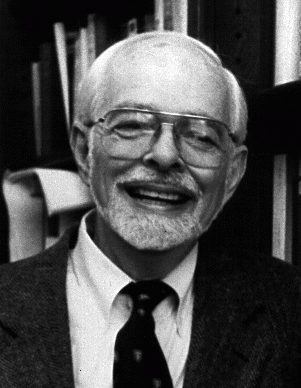Professor John D. Rosenberg

John D. Rosenberg (1929-2019)
The Department of English and Comparative Literature was saddened to learn of the passing in August 2019 of their long-time colleague, John D. Rosenberg, an outstanding scholar of Victorian literature, at the age of 90.
John David Rosenberg was born on April 17, 1929 in New York City, the son of David and Dorothy Lilian (Shatz) Rosenberg. He studied English at Columbia College, and as a “senior of quite limited means” was taken on by Lionel Trilling as his research assistant; John recalled serving as a courier between Trilling and Jacques Barzun, as they sent notes to each other in Hamilton Hall. In the same year, he acted as editor-in-chief for the Columbia Review. After graduating in 1950, and being elected to Phi Beta Kappa and the Philoxenian Society, John stayed on to write his MA thesis in 1951, “A study of Keats's critical sensibility.”
Winning a 1951 Kellett award, John then read English at Clare College, Cambridge, earning asecond BA in 1953, before returning to doctoral studies at Columbia, where he fell under the influence of Jerome Hamilton Buckley: John later wrote that he could “attribute the subsequent direction of my career as a Victorianist to Jerry's mentoring.” He completed his PhD, “Voice in the wilderness: a study of John Ruskin,” in 1960, and this biographical study was promptly published by Columbia University Press in 1961 as The Darkening Glass: a Portrait of Ruskin's Genius. The New York Times published a lengthy review by the biographer Francis Steegmuller who wrote, “He is probably an excellent college teacher; but to employ the elegant language of Manhattan literary business circles, he may soon have to decide whether or not to ‘stay in teaching’. It would be surprising were downtown publishers or foundations not to approach him with offers that would make it easy for him to ‘devote his full time to writing’.”
John decided to “stay in teaching.” When The Darkening Glass was published, he had been a lecturer at the City College of New York for seven years; now he was appointed an assistant professor at Columbia in 1962, promoted to associate in 1966, and full professor in 1967. At Columbia, he served as chairman of the College Humanities program (1970-1973), and director of graduate studies in English (1986-1989). He was among the Tenured Teachers of the Core who won the Alexander Hamilton Award in 1994. John also held visiting positions at Harvard, the University of British Columbia, Princeton, and Clare College, Cambridge, and twice served on the Executive Division of the Modern Language Association for Victorian Studies. From 1994 he held the named chair of William Peterfield Trent Professor.
John’s other monographs were major works on The Fall of Camelot: a Study of Tennyson's “Idylls of the King” (Belknap Press, 1973), and Carlyle and the Burden of History (Harvard University Press/Clarendon Press, 1985). In addition, he edited The Genius of John Ruskin: Selections from His Writings for the University Press of Virginia (1963, revised edition 1997), Algernon Charles Swinburne’s Selected Poetry and Prose for the Modern Library (1968), Henry Mayhew’s London Labour and the London Poor for Dover (1968), and The Poems of Alfred,Lord Tennyson for Cambridge’s The Limited Editions Club (1974). In 2005, Anthem Press collected many of his essays in Elegy for an Age: The Presence of the Past in VictorianLiterature (Anthem Press, 2005).
Following his retirement in 2008, John continued to teach Literature Humanities for some years, before spending time in Manhattan and Peacham, VT, with his wife Maurine. Our thoughts are with his family.
